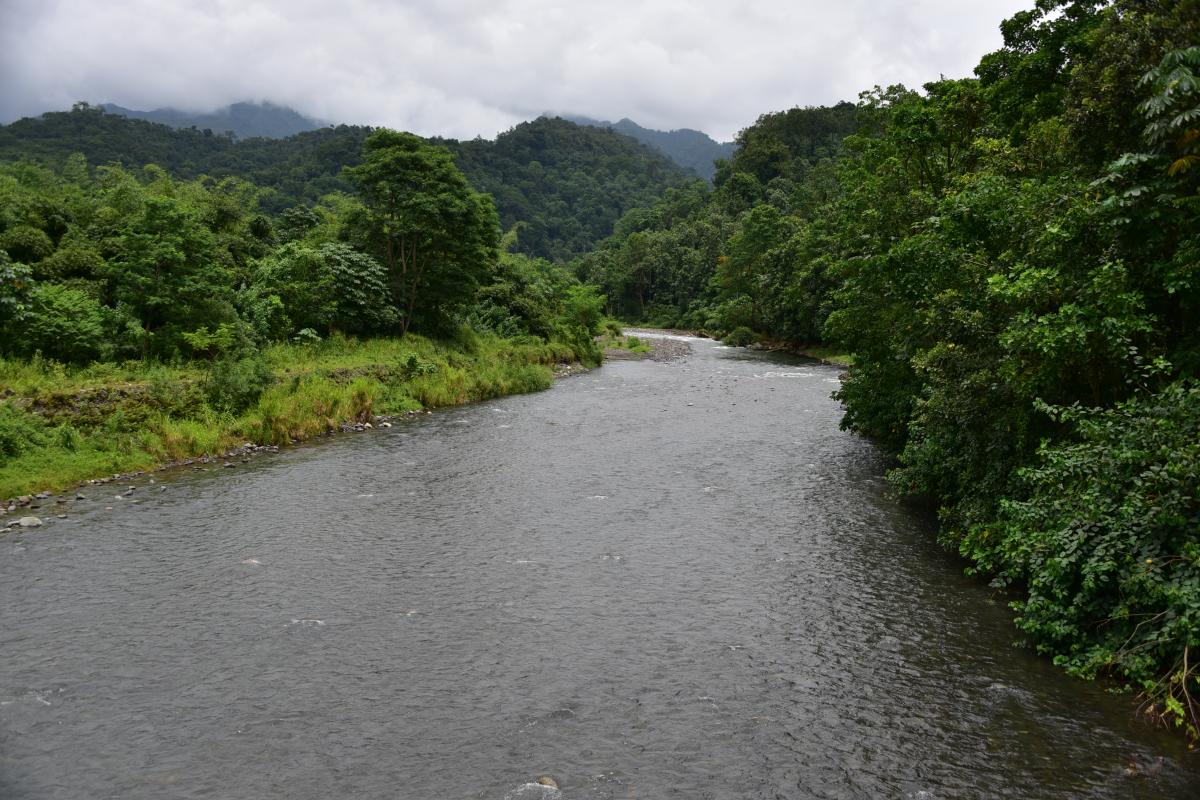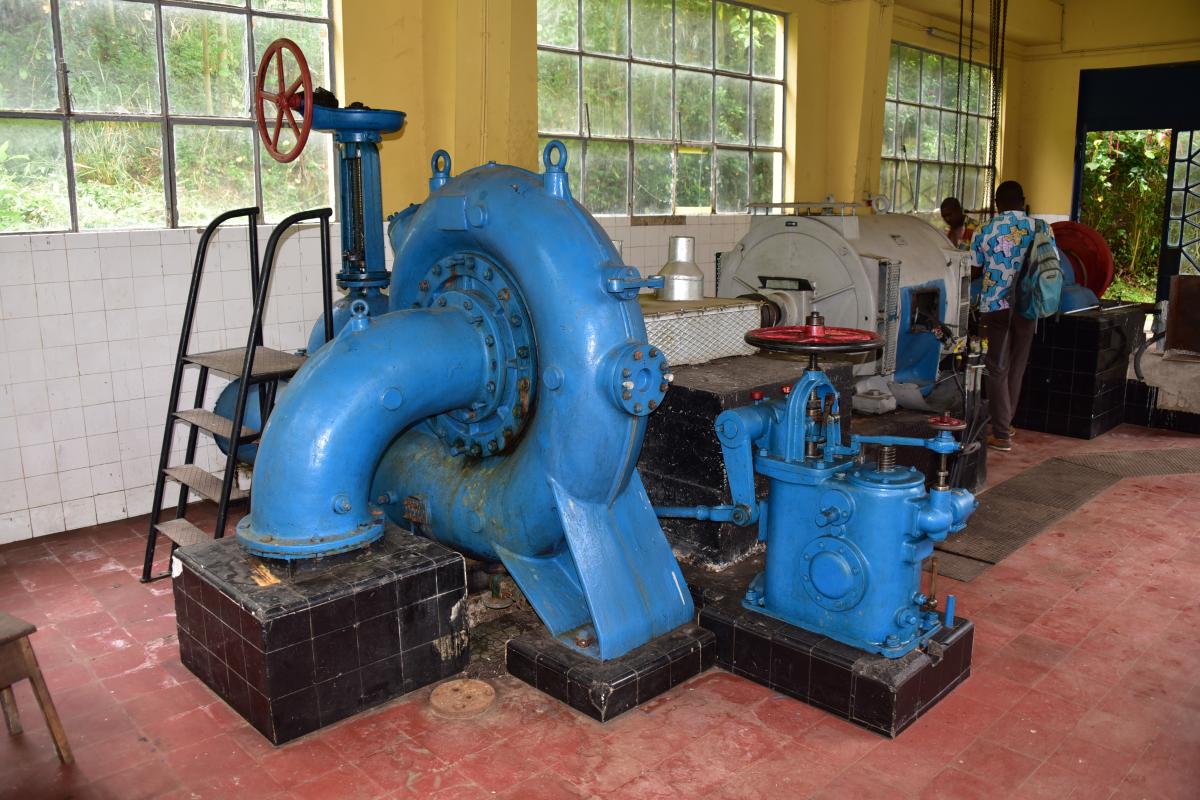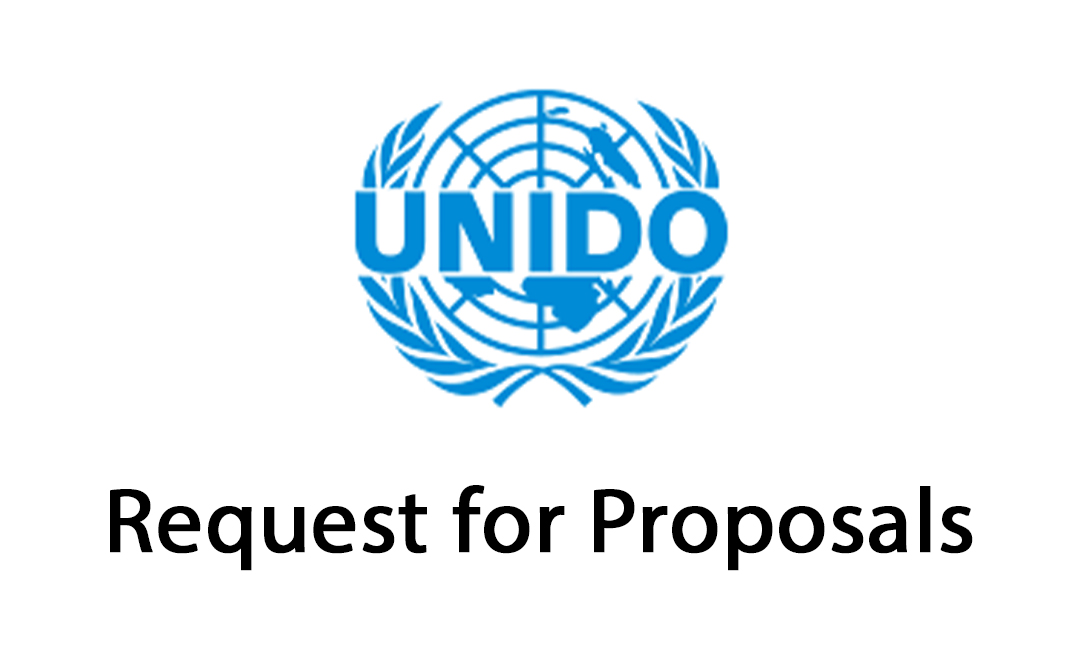Deadline: May – 11 – 2020
1. IntroductionThe Global Environment Facility (GEF) funded project “Strategic program to promote renewable energy and energy efficiency investments in the electricity sector of São Tomé and Príncipe” is implemented by UNIDO in partnership with the Ministry of Public Works, Infrastructure, Natural Resources and Environment (MOPIRNA) and other international partners (e.g. UNDP, WB/AFAP, AfDB). As a Small Island Developing State, STP faces specific challenges in relation to its size, remoteness from large markets, dependence on a small number of economic sectors, direct investment and remittances inflow, lack of resources and a significant trade deficit. Moreover, key sectors of the economy are highly vulnerable to natural, climate, and external economic shocks.

The GEF project contributes to the Vision 2030 “São Tomé e Príncipe 2030: the country we need to build”, which aims to transform the country into a climate-resilient and vibrant island hub for blue economy business, financial services and tourism, benefitting from the growing regional market of the Economic Community of Central African States (ECCAS). The GEF project is also part of the joint UN efforts to support the graduation of STP from the list of least developed countries (LDCs) by 2024. Faced with a situation of constrained fiscal policy, the Government aims to create the conditions to allow the private sector to become an engine of growth, economic diversification and poverty reduction. The focus lies on improving the business climate, promoting foreign direct investment and improving key social and economic infrastructure, including energy.
The success of the Vision 2030 highly depends on a power sector reform and a transformational shift of the entire energy system from a nearly complete fossil fuel import dependency to renewable energy and energy efficiency. Such a transition will lead to a significant reduction of fossil fuel import spending and will free-up scarce hard currency resources for social and economic development (e.g. education, health care, transportation, export diversification, SME development and climate change adaption). Moreover, it will assist key island industries (e.g. water supply, agriculture, food processing, tourism, fishery and the wider blue economy) to become more productive and competitive.
Currently, STP has one of the highest power generation costs in Sub Sahara Africa. The power sector remains subsidized, and tariffs are not cost-reflective, affecting the macro-economic stability of the country. The national utility is not able to recover its costs – with costs exceeding revenue by EUR 11 million (3.1% of GDP) in 2018. Moreover, STP faces challenges resulting from an outdated transmission and distribution system, an energy generation mix highly dependent on costly diesel and poor management. As a result, electricity supply is characterised by frequent power cuts and load shedding, forcing businesses and essential social service providers to run on diesel generators. Still more than 20% of the population in remote and rural areas has no access to reliable electricity services. A majority of the population has no access to sustainable cooking services and relies on traditional biomass and charcoal. UNIDO provides its support under its adopted Strategy for Small Island Developing States (SIDS) and its leading role in the implementation of the Third Industrial Development Decade for Africa (IDDA III). The shift towards sustainable energy futures plays and important role in making African industries more inclusive, resilient, productive and competitive. Further information on the GEF-UNIDO project is available at:
https://open.unido.org/projects/ST/projects/150124.

2. Specific issues addressed by the assignment
As part of the reform agenda, UNIDO and other international partners (e.g. UNDP, WB/AFAP, and AfDB) support the Government of STP in the creation of an enabling environment for renewable energy (RE) and energy efficiency (EE) investments in urban and rural areas and key island industries. Currently, the uptake of RE&EE product and service markets remains constrained by a broad range of barriers related to policy and regulation, institutional capacity, knowledge and awareness, qualification and certification, finance and local availability of technology and expertise. Therefore, the RE baseline and (outdated) experience is limited to colonial run-off-river small-hydro power stations, of which only one is partly functional, and small solar PV applications for rural households and productive uses (e.g. irrigation for agriculture, telecommunication and conservation of fish). The baseline regarding EE improvements is low and largely unknown.
A major barrier remains the weak capacities of the Government to ensure evidence-based long-term planning and the development and enforcement of a coherent energy policy and regulatory framework. The existing energy balance calculations and applied energy planning tools lack of quality and reliable data. Currently, there exists no national energy policy covering the entire sector and interrelated cross-sectors. The interplay between the main institutional players, namely the Direcção Geral dos Recursos Naturais e Energia (DGRNE), the Empresa de Água e Electricidade (EMAE) and the Autoridade Geral de Regulação (AGR), requires still more clarity and resources.
Major focus lies on a power sector reform, which is supposed to lead to enhanced system efficiency and reliability, foreign direct investment and increased private sector participation, incl. in the renewable energy sector. Since 2015, the World Bank is supporting EMAE in the expansion of generation infrastructure (e.g. rehabilitation of one colonial hydropower station), the enforcement of the grid system and a cost-reflective tariff reform. In this context, the WB supported the development of a Least-Cost Power Development Plan, which includes a feasible and viable scenario to achieve a 50% RE penetration in the island grids of São Tomé and Príncipe by 2030. The scenario is based on demand projections, as well as available renewable energy potentials and real project sites. The overall investment costs of this scenario amount to around USD 14,7 million (incl. required grid adaptation costs). It meets the established 50% target in the Vision 2030 and the Nationally Determined Contributions (NDC).
The least cost plan is a major step forward and allows evidence-based policy-making particularly on utility level. However, to make this scenario a reality, urgent changes in and enforcement of secondary legislation are required. According to the electricity law (Lei de base), renewable Independent Power Producers (IPPs) and/or auto-producers are supposed to play a major role in urban and rural electrification. However, investment risks remain high due to a lack of enforcement and the non-existence of fiscal and non-fiscal policy instruments (e.g. obligations, net-metering, rural concessions, public procurement, tax and duty exemptions), as well as practical procedures and technical constraints (standard power purchase agreements, metering).
Moreover, due to its natural focus on utility-scale electricity generation, the Least-Cost Power Development Plan leaves other important areas of the energy transition out (energy efficiency, distributed RE generation, mini-grids and stand-alone applications, cooking, transport). Least cost means also emphasis on energy efficiency. Despite the high technical and commercial losses in the electricity system (around 40%) and escalating urban peak loads, STP has no established EE targets and standards for generation and transmission/distribution, industrial use, buildings, lighting and appliances and cooking. This leads to the unsustainable scenario, where renewable energy capacity (with partly low capacity factors) is increasingly entering the market, but most of the generated electricity (and financial revenues) will get lost during transmission, distribution and end-use. The annual work plans of the Government “Grandes Opções do Plano” just speak about the need to establish EE programs.
Moreover, the focus on “least cost supply” under-reflects other important policy decision-making criteria, such as the ability of different types of technologies to create local value through jobs (primary and secondary) and turn-over of companies. For example, the areas of bioenergy and distributed/decentralised small-scale renewable remain largely left out. However, there you have usually the highest potential for job creation and links to other value chains. Generally, the current energy policy framework is blind with regard to the SDG-9 dimension focusing on local entrepreneurship and innovation, as well as energy for productive uses. The energy transition of STP will be only inclusive if local entrepreneurs have the opportunity to participate in the value-chains of sustainable energy manufacturing, assembling and/or servicing. Otherwise basic equipment and services (e.g. consulting, energy auditing, installation, and maintenance) continue to be imported.
3. Objectives and deliverables of the assignment

To complement the Least Cost Power Development Plan, UNIDO supports DGRNE to develop a holistic sustainable energy vision through a National Renewable Energy Action Plan (NREAP) and a National Energy Efficiency Action Plan (NEEAP). The well-integrated policies will consider urban and rural contexts, the electricity and heat dimensions, and important cross-sectoral policies (e.g. climate mitigation/adaptation, trade, education/research, buildings, transport, tourism, health, agriculture, fishery and other blue economy sectors – e.g. ports and shipping).
Moreover, the plans will create links to the ECCAS efforts to build a common market for RE&EE products and services through the creation of a Central African Centre for Renewable Energy and Energy Efficiency and harmonised standards. The process is currently supported by UNIDO and the ECOWAS Centre for Renewable Energy Efficiency (ECREEE) through the Global Network of Regional Sustainable Energy Centres (GN-SEC). A consulting assignment is being implemented in parallel to this assignment and will offer opportunities for synergy building.
The NREAP/NEEAP will be an important contribution to the national energy policy of STP, which will be developed by the Government in near future. The NREAP/NEEAP will include quantifiable and feasible overall targets and sub-targets (by sector, thematic area and/or technology) by 2030 and 2050. A set of concrete and attainable policy actions to boost the market demand and supply for RE&EE products and services will be proposed. The NREAP/NEEAP will consider important cross-cutting areas such as gender, vulnerable groups and local private sector participation in the expanding local and regional RE&EE value chains.
The NREAP/NEEAP targets and actions will be summarized in a well-developed matrix, which includes quantifiable baseline and target indicators, as well as budgetary allocations and clear responsibilities. The policies will also suggest actions to strengthen the national capacities to implement or enforce the required actions. The framework will pay attention to the Região Autónoma do Príncipe (RAP) and include separate targets or actions if required. The finalization process of the NREAP/NEEAP will include several rounds of revision.
The NREAP will include the urban utility-scale and distributed small-scale (e.g. auto-producers) perspective, as well as the rural decentralized and off-grid dimension (e.g. mini-grids and stand-alone applications). Since most of the left-out rural settlements are to be electrified by renewable powered mini-grids and stand-alone applications, the NREAP will also establish a target/scenario for universal access to electricity services. It will also focus on the heat sector, particularly cooking (to be treated in more detail by the NEEAP), transport and industrial process heat. The NREAP will consider all RE technology options, including latest industry 4.0 solutions.
The NEEAP will consider all dimensions/sectors of EE, incl. generation, transmission, distribution, end-use, lighting and appliances, industrial efficiency, transport, energy saving. The NEEAP will include feasible targets with regard to access to efficient cooking appliances, including improved biomass cook-stoves, charcoal and LPG. It will also focus on transport (e.g. efficient fuel and car standards, electric mobility) and industrial process heat. The NEEAP will consider all EE technology options, including latest industry 4.0 solutions.
As a first step, the contractor will develop an Energy Policy and Data Gap Assessment, which will verify the availability of the relevant data required to develop the NREAP/NEEAP scenarios and portfolios of actions. The starting point will be the current national energy balance calculations and existing reports. The consultants will close these data and information gaps through extensive data gathering, desk research and analysis, rough estimations and consultations. The setting of some targets will require additional data collection, calculations and the modelling of scenarios. Bidders with expertise in energy balance and scenario development are invited to suggest relevant methodologies and (software) tools. The utility-scale scenario is largely covered in Least-Cost Power Development Plan and needs just to be complemented. The developed scenarios and improvements in the energy balance calculations/projections will be handed over to DGRNE for further use (free-of-charge).
The policy gap assessment will identify shortcomings in the current policy and regulatory framework hindering the update of RE&EE product and service markets in STP. It will focus equally on policy elements influencing the consumer demand for and local supply of RE&EE products and services, including the area of domestic energy entrepreneurship and innovation. The consultants will base their recommendations on international best-practice examples, preferable in the context of islands. The collected data and information will be handed over to DGRNE and will be disseminated through the STP Energy Information System, currently developed with UNIDO support.
The NREAP/NEEAP will be developed in the scope of a consultative and participatory process, integrating all relevant national and international key stakeholders. Overall supervision is being provided by the National Sustainable Energy Platform (NSEP). Two expert sub-committees on the NREAP and NEEAP will be established and regularly report to the NSEP. The overall ownership in the process lies with DGRNE, which will be supported by UNIDO and other international partners (e.g. UNDP, WB/AFAP, and AfDB). A division of labour between the supporting partners on the implementation of the identified policy actions will be established. The NSEP will monitor the implementation progress and report to relevant governmental processes related to the Vision 2030 and NDC. Also due to the COVID-19 travel restrictions it is essential that the contractor employs local experts.

Specifically, the consultants will provide the following deliverables in Portuguese (fully edited, designed and ready to be published):
1.) Energy Data and Policy Gap Assessment
2.) National Renewable Energy Action Plan (NREAP) and Scenario
3.) National Energy Efficiency Action Plan (NEEAP) and Scenario
4.) One capacity building workshop and one webinar on the NREAP/NEEAP
5.) Summary Document for policy makers (in Portuguese and English)
6.) Five terms of reference (TORs) for the development of RE&EE standards or regulations
Applicants are requested to submit their proposals no later than 10 May, 2020, 18:00 hrs., CET, by registering on the UNIDO procurement page (www.unido.org/procurement). In case of difficulties, applications could exceptionally be sent to procurement@unido.org. The bidder should, however, provide an objective and convincing justification for not having submitted via the procurement system.
GEF-UNIDO Project Contacts:
Mr. Martin Lugmayr, Project Manager, UNIDO, Climate Policy and Partnerships Division, Department of Energy
Mr. Gabriel Makengo, National Program Coordinator, DGRNE, MOPIRNA, São Tomé and Príncipe

